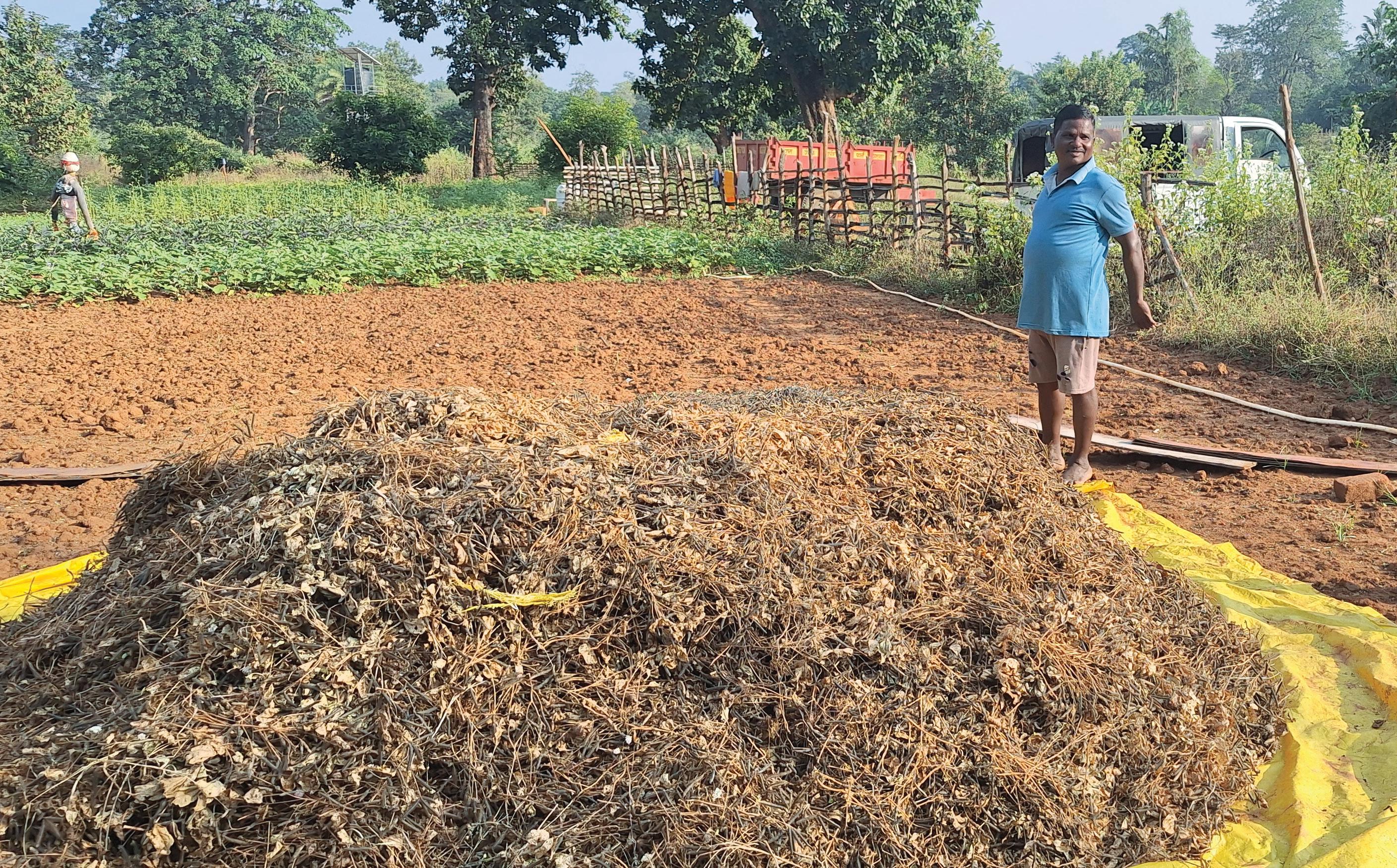Organic move
Down To Earth
|February 16, 2025
After 10,000 farmers in Dantewada district secured Chhattisgarh's first organic certification, the entire district now gears up to transition fully to organic farming

CHANNU KUNJAM recalls the advice his father gave him when he took up farming 13 years ago: "Chemicals will ruin our land." The resident of Aalnar village in Chhattisgarh's Dantewada district says his family has always practised organic farming, relying on dried leaves and cow dung. A decade ago, Kunjam, who owns 2.54 hectares (ha), started preparing jeevamrit, a fertiliser made using ingredients available at home and in the fields. "We need cow dung and urine, jaggery, gram flour and soil to make jeevamrit. We leave it for seven days before using it on the field," says Kunjam.
Rita Modiyam, a farmer from Masoodi village in the same district, says the use of jeevamrit has helped improve the productivity of her farm. "I was a subsistence farmer a decade ago. Today I grow enough crops to feed my family and sell at least 20 quintals (2,000 kg) of paddy and a variety of vegetables," says Modiyam.
Kunjam and Modiyam are among the over 10,000 farmers in 110 villages of Dantewada who have received organic certification under the Large Area Certification (LAC) scheme in 2023-24. Launched in 2020-21, LAC is a Union government initiative to certify large contiguous areas such as hills, islands, or desert belts that have been traditionally organic. It is part of the Participatory Guarantee System-India, an organic certification framework introduced in 2011. Until now, only Ladakh (5,000 ha) and Lakshadweep (2,700 ha) had received LAC certification. With the 110 villages, which have 65,000 ha of farm area, Chhattisgarh has become the first state to have area certified under LAC.
COMBINED EFFORT
This story is from the February 16, 2025 edition of Down To Earth.
Subscribe to Magzter GOLD to access thousands of curated premium stories, and 10,000+ magazines and newspapers.
Already a subscriber? Sign In
MORE STORIES FROM Down To Earth

Down To Earth
KING OF BIRDS
Revered for centuries, western tragopan now needs protection as its forests shrink, human pressures mount
3 mins
December 16, 2025

Down To Earth
WHISKERS ALL AQUIVER
Climate change threatens creatures that have weathered extreme environments for thousands of years
2 mins
December 16, 2025

Down To Earth
GOLDEN SPIRIT
Survival of the shy primate is closely tied to the health of Western Ghats
3 mins
December 16, 2025

Down To Earth
RINGED EYES IN THE CANOPY
Rapid habitat destruction forces arboreal langur to alter habits
2 mins
December 16, 2025

Down To Earth
HANGING BY THE CLIFF
The Himalaya's rarest wild goat is on the brink of local extinction
2 mins
December 16, 2025

Down To Earth
ANGEL OF THE BEAS
Conservation reserves, citizen science, and habitat protection give the Indus River dolphin a fighting chance in India
2 mins
December 16, 2025

Down To Earth
UNDER MOONLIT SCRUB
Survival of this hidden guardian tells us whether our scrublands still breathe
2 mins
December 16, 2025

Down To Earth
SYMBOL OF SILENT VALLEY
Lion-tailed macaque remains vulnerable despite past victories
2 mins
December 16, 2025

Down To Earth
THE APE IN OUR STORIES
India's only non-human ape species is a cultural icon threatened by forest fragmentation
2 mins
December 16, 2025

Down To Earth
SENTINEL OF THE HIGH COLD DESERT
The bird's evocative call may not continue to roll across the cold desert valley for long
3 mins
December 16, 2025
Listen
Translate
Change font size

